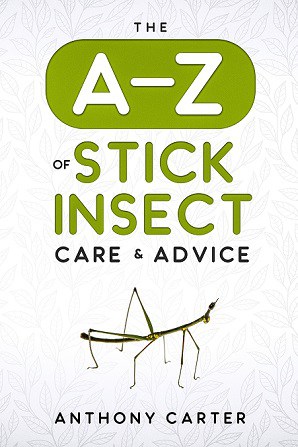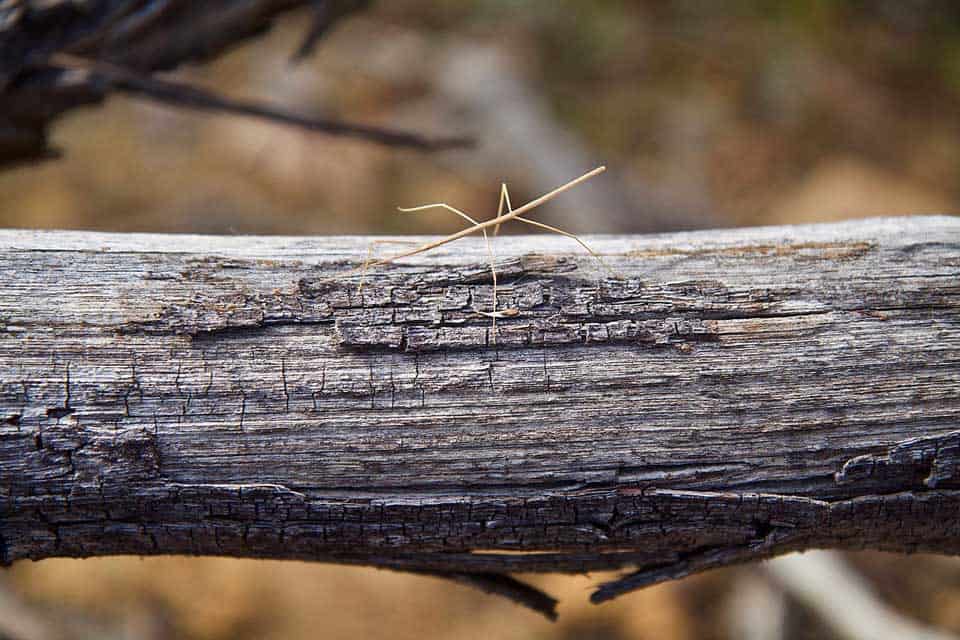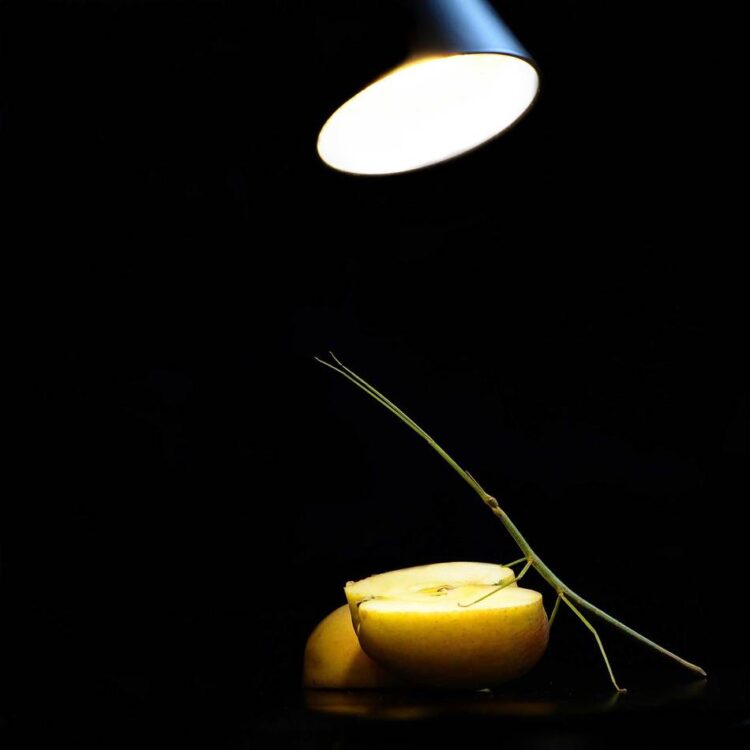Table of Contents
You have likely heard that stick insects prefer dark, humid places. The chances are you have also heard that stick insects are nocturnal creatures.
They mainly come out to feed at night as this is the time when predators are least likely to see them. But keeping a pet stick insect and observing one in the wild are two different things.
and observing one in the wild are two different things.
So do your stick insects require light, and if so how much of it do they need? The short answer is…
Yes, stick insects do need light. Although nocturnal by nature, they require a day/night cycle to thrive.
For more advice and information on keeping and looking after stick insects, check out my ebook on Amazon click here
(opens in a new tab).

Why You Must Understand the Day-Night Cycle
Well do stick insects need light? The answer is yes because of the day-night cycle they follow. The University of Alberta says that stick insects operate on a day-night cycle just like any other animal in the world.
says that stick insects operate on a day-night cycle just like any other animal in the world.
They are by nature nocturnal creatures, so they will be active at night. Know though that you cannot train your stick insect to be more active in the day.
Traditional domesticated pets, such as cats and dogs, generally adjust to your cycle when kept indoors. This is a basic survival mechanism kicking in because if your dog or cat knows that it is only going to receive food during daylight hours, it will sleep during the night.
Stick insects, on the other hand, do not have the capacity to do this.
They will always be most active at night, regardless of what you do. It is impossible to train them like other pets.

Why Stick Insects Are Active at Night
We briefly touched upon this point earlier, but it is worth going into a bit more detail so that you can understand this issue more.
One of the most common misconceptions is that stick insects are active during the day because of their impressive camouflage abilities. This has nothing to do with that. The reason they camouflage themselves is so that they can rest during the day when they are most vulnerable.
Remember that insects like stick insects do not have eyelids, so the traditional idea of sleep doesn’t apply here. Sleeping to a stick insect essentially means remaining in one place and resting.
essentially means remaining in one place and resting.
Now that we have established that camouflage is designed to aid resting, we can understand why they are nocturnal creatures.
The main evolutionary reason for the stick insect species being nocturnal is entirely down to avoiding predators. Even a camouflaged stick insect will become visible if it is moving.
is entirely down to avoiding predators. Even a camouflaged stick insect will become visible if it is moving.
The camouflage is a safety net for resting, but it is rendered ineffective when the insect is moving about. Any eagle-eyed predator will spot it.
But What if I See My Stick Insect Active During the Day?
This is a valid question because it makes no sense that a nocturnal creature would be active during the day, especially if it cannot be ‘trained’ to adjust to a human sleep schedule.
Even in the wild stick insects might feel the need to change positions or to feed. They may also have the need to moult, which requires them to get into a position to moult and to find the right conditions. So the chances are you’re seeing your stick insects active during the day for these reasons.
How Should I Handle My Stick Insects During the Day?
It is important to not interfere with their natural behaviour. That’s why you should try to limit handling time during hours of light. If you do not mind staying up late, handling them at night is always better as it maintains that critical day-night cycle.
But other than that, you do not have to change the way you manage your stick insects. Continue to handle them correctly by lifting them up by the thorax or, preferably, coaxing them onto your hand with a leaf.
Do I Need to Regulate My Pet’s Hours of Light and Dark?
A big mistake that is constantly made by beginners is that they assume they can leave the lights off because their stick insects are nocturnal. This is not good for them because it will impact how and when they rest.
As with any creature, you need to find a balance. Even creatures that hibernate during the winter wouldn’t fare any better if the winters grew warmer.
Offer a balance. This is why it’s good to keep their enclosure in an area that receives natural light and the lights are turned off when the sun goes down.
This doesn’t require any real effort to. Stick insects are some of the easiest creatures to take care of for this reason. Just regulate their light and dark hours as you would regulate your own.
Should I Disturb My Stick Insects During the Day?
Unfortunately, this is largely unavoidable. You will find it nearly impossible not to disturb them because of when you clean the tank and replace their food supplies.
Since it is recommended that you replenish their food supplies once per day, you are always going to have to disturb them at some point.
You might feel bad about this, but it is all in keeping with the conditions they would face in the wild. Whether it is a strong wind or the approach of a predator, stick insects are used to being active during the day as well.
But you can support your stick insects by providing them with areas of the tank where they can hide in the darkness. Some old foliage is a good idea, but there’s nothing wrong with providing a permanent covered area for them either.
where they can hide in the darkness. Some old foliage is a good idea, but there’s nothing wrong with providing a permanent covered area for them either.
Try to keep it away from the feeding area though, just so you don’t have to disturb them too much.
Last Word – A Complex Issue Made Simple
The debate over the day-night cycle is often over complicated by novice stick insect owners. They want to provide their pets with the best possible conditions.
But any veteran stick insect keeper will tell you that stick insects are hardy creatures and are able to adapt to all but the most extreme conditions. Do not fret if they only get a few light hours a day or you have to clean parts of the tank. It is not going to impact their overall well-being.

